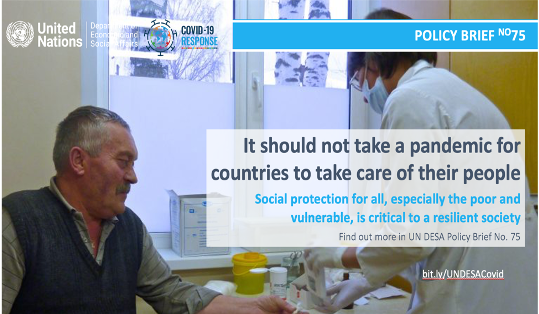The emergence and spread of the coronavirus in late 2019 and the impact of its disease, COVID-19, which has been categorized by the World Health Organization as a global pandemic, is, at the time of writing, ongoing.
Efforts by governments to try to control the pandemic’s spread while managing its wide-ranging impacts demonstrate the critical role of the relationship between state and people in shaping and determining government responses, strategies and approaches in tackling the crisis. While there have been some rapid and effective responses by governments, in many respects, the pandemic has exposed some of the shortfalls in countries’ resiliency to crisis, and in particular in the way the state relates to its people in realizing the values and principles of effective governance.
Resiliency and effective governance go hand in hand and are key elements of the 2030 Agenda for Sustainable Development. Together with its 17 Sustainable Development Goals (SDGs) the Agenda provides a global transformational strategy which aims to foster resilient societies that embrace the values of equity, equality, inclusion, accountability, integration, peace and security, justice, respect for diversity, collaboration and partnerships.
Resilient societies are premised on effective governance and the principle of leaving no one behind, key elements for being equipped to deal with unexpected crises. The United Nations Committee of Experts on Public Administration (CEPA) outlined 11 principles of effective governance, categorized into three groups: group one focuses on effectiveness (competence, sound policy making, and collaboration), group two focuses on addressing accountability (integrity, transparency and independent oversight) and group three focuses on inclusiveness (leaving no one behind, nondiscrimination, participation, subsidiarity and intergenerational equity). All principles are necessary for effective governance and sit at the core of the relationship that should exist between the state and people.
File added date: February 2021
Published by: UN DESA/DPIDG
 مرحباً بكم في الأمم المتحدة
مرحباً بكم في الأمم المتحدة 
